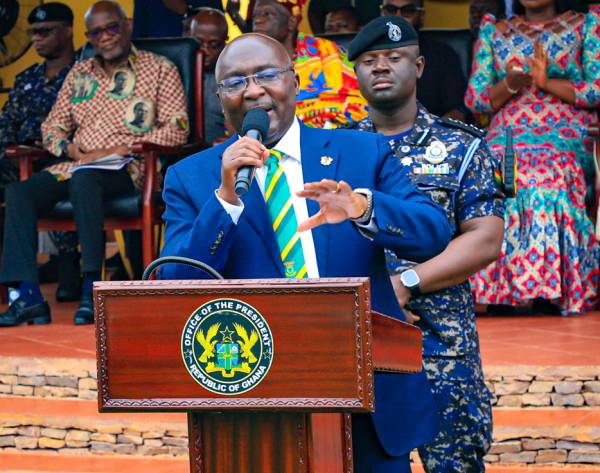Ghana is embarking on a historic initiative to issue National Identification numbers, commonly known as Ghana Card numbers, to newborn babies in the country. The Vice President of Ghana, Mahamudu Bawumia, announced the commencement of this initiative after the successful integration of the databases of three key institutions: the Births and Deaths Registry, the National Identification Authority, and the Ghana Health Service.
In an official statement on Saturday, July 22, 2023, Vice President Bawumia revealed that the system had undergone comprehensive testing, and on Friday, July 21, 2023, the first Ghana Card number was issued to a newborn baby, marking the successful completion of the trial run.
Starting from the following month, all babies born in Ghana will be eligible to receive their Ghana Card numbers when they visit the Weigh-In clinics. Additionally, they will also be issued their Birth Certificate Identification numbers at the same time. This integration between the two databases ensures a seamless process for newborns to obtain their identification numbers, which will remain with them throughout their lives.
The Vice President expressed his excitement about this transformational initiative, emphasizing that it represents a significant step in the government's ongoing digitalization agenda. By issuing ID numbers to newborns, Ghana is positioning itself to fully participate in the Fourth Industrial Revolution, paving the way for a more digitally connected society.
Furthermore, the Ghana Card is rapidly becoming the primary proof of identity for various services, including Social Security, Health Insurance, and Tax Identification. By having a unique identification number assigned at birth, individuals can efficiently access essential services and benefits throughout their lives.
Officials from the National Identification Authority (NIA) clarified that the physical cards bearing the biometrics and other relevant data will be issued to the children when they are older and their physical features are fully formed. This ensures the accuracy and reliability of the identification process.
Speaking at the 75th Anniversary celebrations of Ghana National College in Cape Coast, Vice President Bawumia commended the institution's contributions to Ghana's pre-and post-colonial life. He also challenged educational institutions, including Ghana National College, to embrace the possibilities offered by Artificial Intelligence (AI) to enhance teaching, problem-solving, and critical thinking.
Vice President Bawumia stressed that integrating AI into education is crucial to prepare the current generation of students to compete on the global stage. As part of the government's commitment to digitalization, the deployment of meaningful AI solutions will help bridge the gap between developed and developing nations. The government's ongoing digitalization agenda is a testament to its appreciation of AI's potential to drive progress and ensure Ghana remains relevant in the modern world.
While the government takes the lead in charting a path towards meaningful AI deployment in the nation's life, Vice President Bawumia called upon educational authorities to devise and implement innovative teaching strategies that incorporate Information and Communication Technology (ICT) as a key ingredient. By doing so, Ghana can better prepare its students to thrive in a technology-driven world and seize the opportunities that lie ahead.
Overall, Ghana's decision to issue National Identification numbers to newborns represents a significant leap towards creating a digitally inclusive society. The move aligns with the country's vision to leverage technology to improve governance, access to services, and overall quality of life for its citizens, setting an example for other nations to follow.




No comments yet
Be the first to share your thoughts!